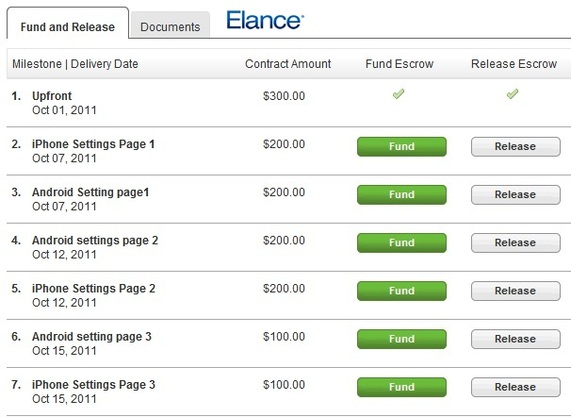 If you’re an immigrant like I am, you probably get vexed whenever you see any immigrant-bashing politicians and interest groups in the popular press. It might even make you feel unwanted in the country you have chosen to live. I commiserate with you because this is exactly how I used to feel but I have taken on a fresh perspective this week: I had the pleasure of attending a ceremony where immigrants take an oath to become British. As I sat around waiting for things to kick off I looked around the room and thought a bit about some of the characters there: most people took the occasion very seriously and were well-dressed, over-dressed even; some wore their pride in becoming British very clearly in their expression; there was one guy who spoke so little English (if any) that he couldn’t confirm what his name was when asked; there were a couple of families there with one English speaking family member present, typically the father, with the rest still unable to communicate and comprehend instructions; in one case, the English speaking father had a pregnant wife and two kids under three in tow. This got me thinking, what sort of people does any country want to attract? The answer is simple: positive contributors; people that will add more to the local economy than they will take out of it. Such contributors need also to show a willingness to assimilate and integrate into the economy by, at a minimum, learning the language and the culture. To live somewhere for five years and still be unable to speak the language reflects a serious lack of interest in the culture. The English test required to become British is so easy it’s impossible to fail. This was quite evident from the struggles some displayed in following rather basic instructions. Still, this is only one side of the argument.  It’s all well and good for me to say contribute to society, learn the language, learn the culture, however, is it that straightforward? Let’s enter the life of a young girl of 16 or 17 who’s been married off straight out of Asia and brought to England. Her new husband owns a store, for instance, what control does she have over her life? She likely has extremely limited education and even less freedom. If her husband works in the shop all day and she lives in the flat above, her actions will be under constant surveillance. Even if she wants to learn English, she might be afraid to ask her husband? “What do you want to learn English for?” he may well ask. He may be unwilling to relinquish the supremacy he enjoys over her being. Educating his wife in anyway would empower her and perhaps, by his own thinking, reduce his ability to ‘keep her in check’. Indeed, it is highly possible that although the mother may fail to integrate into the community, she may raise her children to be well contributing citizens that any country would be proud to have. A possible step forward could be the implementation of a compulsory and rigorous integration course, say taken by those that would not qualify under a reasonable scoring system similar to that used for a highly skilled migrant visa. It’s a tough issue, made more complicated by those that hate immigrants for the sake of it and immigrants that purely want to take advantage of a generous benefit system. Nonetheless, I empathize both with the powerless immigrant and those citizens that genuinely just want a responsible immigration system.
0 Comments
 I was sat around the dinner table with my maid of honor Cecillia, her fiancé Harry and my fiancé Harry arguing about our Myers-Briggs scores. The last test I had done suggested I was ENTP and I tended to agree having read several descriptions. That said, I was pretty sure the last time I had done a similar test I had scored differently, although I couldn’t remember what that result was. Cecillia’s Harry thought I would have been ESTP and frankly, he could be right. In my case, the “E” and the “T” are definite, there’s no argument there. The second and fourth letter are, however, so much more difficult to decide. The likelihood is that I am moderate senser-intuiter with a slight preference for intuiting. In fact, I could comfortably say I have changed over time. I think I used to be more of a ‘sensing’ type of individual but life experience has told me that my intuition and my gut feel often take me to the right place and spending too much time on the detail bores me, so I trust my gut a lot more. I would go as far as saying, the person I am today is a lot different to the person I was, or thought I was fifteen years ago. I have grown to be an adult that’s more flexible and more willing to accept different ways of thinking. I used to be extremely rigid, I liked everything to be in absolute order: everything in the fridge had to have a place, the bookshelf ordered big to small and I was actually very unwavering in my views, I was always right. In my teens, when we went on holiday I wrote a list of everything that would be taken, in insane detail: 10 underwear, 1 roll on, 3 spaghetti tops, … you get the drift. Today, I still like some order but my plans are a lot more adaptable. I still write lists but only where it matters, I throw my suit case together the night before a trip forgetting 20% of what I should have taken but not caring either way. Cecillia doesn’t think a Myers-Briggs score should change. I totally disagree. I think every single life experience teaches me things about myself, my preferences and my capabilities that I didn’t know or had never thought about. I sometimes react to a situation in a way I would have not have predicted if presented with the scenario hypothetically. For instance, I remember the first time someone told me they were an atheist I was taken aback, slightly confused. I had come from a monoculture (in Malawi) where no one would have the cahunas to admit such a view. In multicultural Cambridge, I was continually meeting all types of people. I obviously did know atheism existed but I had never paid it much thought. In my country, anyone who does not believe in God would be seen as immoral or demonic by most. I had known my atheist friend long enough to know he wasn’t either, he was actually a really thoughtful and sensitive guy. Nonetheless, I took his non-belief as a negative. I thought about beliefs long and hard and it actually took me a number of years to accept that there are circumstances that lead people not to believe in a God and that it was actually perfectly acceptable and normal. Years. Many similar experiences continue to shape me and change me on a wide range of subjects. I would agree that after a certain point the Myers-Briggs should have a lower propensity to change but it might change nonetheless. We continued debating the issue but my mum shut us up by saying, “There are three people in everyone, there’s the person people think you are, there’s the person you think you are and there’s the person you really are!” Who can argue with such wisdom?
 There are many ways in which to raise well turned out children. For simplicity, it’s possible to split parents into two schools of thought: The ‘School of Freedom’ says let them decide, children should be allowed to have lots of fun because laugh is hard enough and they should decide what activities that they want to get involved in because it’s their life. Frequently such parents will also argue that there’s too much competition in school so it takes the fun out of learning. The ‘School of Structure’ says set them up with a time table of activities that will give them what you as a parent believe is the best chance in life. Such parents may spend hours taking their kids from one after class activity to the next, they’re probably also paying for private tutors to top-up on the schooling. You will frequently see parents that fall at either extreme end of the spectrum put together on shows like Wife Swap (UK or USA) or Trading Spouses. Every time both sets will move a little closer to the center as they realize their kids either have way too much freedom or indeed too much structure. I was just watching the Finale of Junior MasterChef when these thoughts were swimming around in my head. I love watching junior competitions even more than the adult versions firstly, because although it is just as competitive the feedback is always very constructive and even the criticisms are given in the best light. The judges don’t want to be seen as utterly discouraging so they use all the tact that they can. Secondly, the children are frequently so unaware of themselves that they are not overly cautious; they don’t carry all of the nerves that adult competitors tend to. If you watch the finale of Adult MasterChef you can literally feel the tension in the room. There was a child on today’s Final of Junior MasterChef cooking something that she had never cooked before, she knew it was risky but hoped that by following the recipe it would turn out okay. So sweet, so innocent. You hardly ever (probably, never) see these sorts of risks in adult competitions; competitors have normally cooked their chosen dish many times. Junior MasterChef does allow the kids more time so that will in itself reduce the stress but my previous points still hold. You can clearly see that I believe in providing a fair amount of structure and I’m very open to competing. Kids don’t know enough about life to decide for themselves. You learn what you like and what you don’t like through exposure. You gain exposure by taking part in an activity. A child comes to understand that there are different ways of doing things by being taught; sometimes even the most basic things need to be taught. For instance, when I was a five or six year old child, I went into the loo when my dad was brushing his teeth because I was desperate and couldn’t wait. When I was done, I pulled up loads of tissue, scrunched it up into a ball and wiped, as you do. “That’s not how you use toilet paper,” my dad said. He proceeded to take four strips, folded them neatly, and said “This is how you do it.” I had never until that moment thought that there was another way. My pa is an extremely organized person. He’s the perfect combination of flexible and structured; there are many things I learnt by observing him but there are so many others I had to be taught or told. One of my best friends deeply regrets telling her mum she didn’t want to do ballet or classical dancing when she was in primary school. She wishes that her mother had made her do it anyway. At the age of 18, her regret was too late, anyone forging a career in dance had been doing it for over a decade, she felt that she was so behind the curve that there was no point in even trying. By the time she had mastered the necessary skills, she thought she would have been too old to succeed! Providing structure doesn’t mean making your kids super academics, it’s probably even more important if your child is not academic. School is always going to be slanted more towards the scholarly pursuits, if you feel your child is not that way inclined fill their free time with dance, music, art, sport – not with video games! It’s a dog eat dog life out there and you can’t protect kids from that. The more you try to protect, the more you could be causing them harm in the long run: they might not be able to take the pressure once they are thrown into the real world. There are tons of super ambitious, super smart people out there and the quicker you embed a work ethic in your kids, the better. Where do you fall in the freedom versus structure spectrum?
A week ago, I decided I wanted an app that helped me with a certain something. I searched for existing iPhone apps that could do this thing but I couldn’t find anything suitable. So what does a girl do? I basically spent the whole of last weekend designing my own app. I sat on my computer from 7.30 a.m. on a Saturday until 2 p.m. without so much as a break. My brain was toast. I couldn’t do anymore work so I went to enjoy the day and came back for more work that evening and well into the Sunday! By the close of play on Sunday I had an excellent proposal for an app; highly detailed with diagrams and everything. One problem: I hadn’t even thought about how I would develop it;pretty dumb, huh?! Well I didn’t want to get discouraged by the development quotes so I thought it best to get the ground work out of the way and worry about costs later. I had read that there are now companies and websites that allowyou to develop an app yourself for $500. That’s a really good price but I don’t have time to do this without some serious moonlighting In the latest edition of Entrepreneur magazine they talk about AppBackr. It’s a website where you post apps and get equity funding for the idea. It’s a great company but I didn’t want to give away any equity, especially since this application is more a labor of love than purely an enterprising venture. Whilst the equity investor would be focused on how they might recoup their money I was entirely focused on how many people this app could benefit. Also, I thought the suggested costs of development on AppBackr sounded too high. I know that India is a technology powerhouse so I found a couple of developers online but before I gave them the commissions I told them that I was scared of my idea leaking out. I was impressed by their professionalismbecause both of the developers sent me their Non Disclosure Agreement forms within one day. They were pretty good but I was still worried about things like paying and not getting the app developed on time. I needed reviews and a proven track record to get comfort but I thought that I couldn’t get any of that stuff in a reliable manner from an independent developer on another continent. My world changed when I found an article on OSX Daily that referred me to Elance and oDesk. I read the OSX Daily article in bed on my iPhone on the Sunday night after I had completed developing my app on paper. On Monday morning, I could still remember the word Elance due to its derivation from Freelance so I went online, liked what I saw, created an account and wrote a short paragraph about what sort of app I wanted. If you want a fixed price for your job Elance requires you to state your budget range and so I chose to go for $1,000 to $5,000. I had been holding out for a $500 app but my reading had suggested this was not going to happen if I wanted a quality app hence my choice of budget range. You can also get quotes for hourly rates but I was focused on the total cost of my project. Posting a job is free, however, Elance allows you to distinguish your level of seriousness by paying $5. This $5 means your job will get more attention from developers than those that don’t pay the extra $5. I was astounded by the response. Within two hours, I had 14 people showing interest in developing the app. By the time I got home on Monday there were 22 offers, by mid-week there were 27 and by the end of the week there was an astounding total of 33! I sent an NDA which I had crafted up myself using the independent Indian developers’ as a base and firm offers to develop my app started rolling in. Given my experience, I would highly recommend Elance. Given such a wide range of offers, how does one choose a single developer? I used the following criteria: The initial offer. Some of the app developers in their initial offer to do my job referred specifically to the things I mentioned and gave me relevant reasons for why I should choose them. Others just copied and pasted a generic blurb on what their company does and why they were so good. That seemed like really low effort to me so I rejected those offers quite quickly. English. You need to be able to communicate. If the developer’s English was of a very low standard relative to what I needed, I rejected the offer. Track record on Elance. For some developers, the work stream on Elance has become a very significant source of revenue and they do not want to lose this stream of work so they are less likely to mess you about for fear that they will get lower Elance points if you report them or review them negatively or worse still, if they get kicked off Elance Negative Reviews. People that have used a developer can rate them. Developers do not want to get negative reviews because that will reduce business volumes so they will try their best to be helpful. I rejected one serious contender based on a review that suggested they upped their price for minor changes and were very bad with deadlines. It was just one bad review but it still gave me cause for concern and I wasn’t going to take that risk when I had such a pool to choose from. Competition is fierce! Depth of experience. Some of the offers you get will be from people who have a very long track record, however, this track record may be website development rather than app development. When you are down to your last three or so ‘contestants’ filter the reviews for words like iPhone or android to see exactly what proportion of these reviews are relevant to the app you want developed. The results may surprise you or help to sway you from one developer to another. Visual quality of apps. I had two contenders that both appeared great and both had sent me links to all the apps that they had created, however, when I looked at each link carefully one produced far better looking apps than the other. Size of the company. I wanted my app to be taken seriously and my feeling was that the larger companies would give it less priority than other bigger projects so I rejected the proposal of the largest company;well, their final quote to do the project was outside of my affordability range so that wasn’t even an option for me in the end. Skills. Elance breaks down the skills a company has into very specific categories and although self rated to begin with, over time, as those skills are tested through various jobs, those skills are rated and given a ranking relative to every other Elance company with those skill., tThis is very useful because you can see whether the Developer is in the top “x”% in the category of skills that you need. Percentage of repeat customers. This is an interesting stat but I didn’t give too much weight because many people might not require a second job done. Completion. If you have a strict deadline look carefully at how long the developer says they need to complete the work. Contactability: all the developers were available to chat on Skype so you could ask more questions. Definitely go for a developer that you won’t have trouble getting hold of. Other things. In my final Skype interview, I asked the prospective developer a bunch of operational and technical queries like: will I have a dedicated project manager? How often will I get progress reports? Will they upload the product to the app stores for me? Has Elance’s fee been included in their quote? (The developer should really be accounting for this in their quote, or explicitly state that they have not) Has the fee for app stores been included? After the app is live do I get free project support for a limited time to fix any bugs? Will the app be developed in its own native language rather than a hybrid that can read across platforms? Apparently apps made this way are of lower quality. What happens once you assign the job to a single company? The company breaks up the job into small milestones with expected dates for reaching the milestones and you only pay when a milestone has been completed. You fund the milestone just before it is done so that the Developer knows you have the money but that money is held in escrow by Elance and you hit a release button for the funds to be released once the milestone has been reached. In this way, Elance protects you from unscrupulous businesses. So, if you have an idea, especially in the technology space on your mind, don’t sit on it – get on Elance or oDesk and post it. I haven’t tried oDesk myself but I can definitely recommend Elance.
|
Archives
December 2015
Categories
All
By Heather Katsonga-WoodwardI'm always thinking, debating, considering and revising my views - some of those deliberations will be shared right here. |






 RSS Feed
RSS Feed
